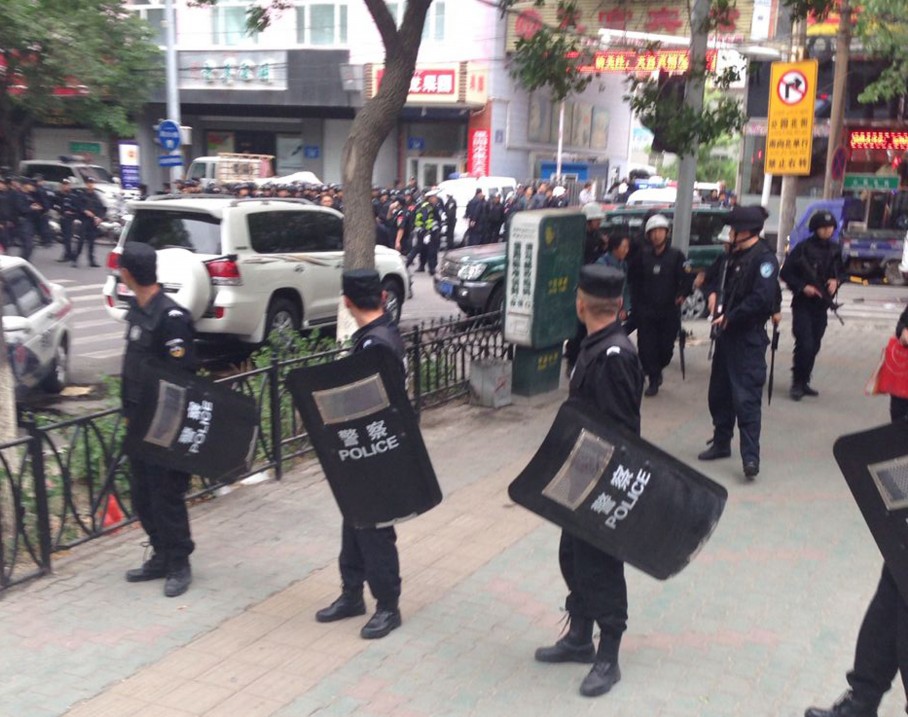Chinese authorities in the restive far western region of Xinjiang have been forcing Muslim students at universities to eat during the daytime, violating their fast during the holy month of Ramadan. That’s according to a BBC report, citing three Muslims who spoke on the condition of anonymity. Xinjiang is the homeland of ethnic Uighurs, a Turkic Muslim minority whose religion and language sets them considerably apart from much of China.
According to the BBC, students were compelled to dine with their professors, and those who refused risked sanction from university officials. “If you want a normal life here then you’d better not fast,” said one student.
The Chinese state, per communist strictures, has always been atheist, but its crackdown on Ramadan has much more to do with current politics. China has seen a spate of shocking terror attacks which Beijing attributes to jihadist militant networks operating in Xinjiang and Central Asia.
The Chinese response to the perceived threat has been severe: President Xi Jinping dramatically called for “nets spread from earth to the sky” to combat terrorism and urged party officials to help “religion adapt to a socialist society.” Whatever that means, Uighurs in Xinjiang have long complained about Beijing’s systematic repression of their distinct identity and cultural practices. This year, according to the students quoted by the BBC, university departments across the region are enforcing the ban on fasting. Uighur medical staff at a government hospital were even made to sign a written pledge guaranteeing that they wouldn’t fast during Ramadan.
The Uighurs’ brand of Islam is known for historic syncretism; it is steeped in Sufi traditions, and one of Xinjiang’s holiest sites is a tomb of a 17th century concubine to the Chinese emperor. But in recent years, there has been a growing radicalization, in part a consequence of China’s heavy-handed handling of the region.
As discussed here, Chinese policies in Xinjiang have led to the downgrading of the Uighur language, restrictions on religious gatherings, mass round-ups of suspected dissidents and the bulldozing of much of Kashgar’s Old City, the symbolic heart of the Uighur culture. In that context, being forced to eat lunch is perhaps not the worst injustice.
Source: Washington Post

